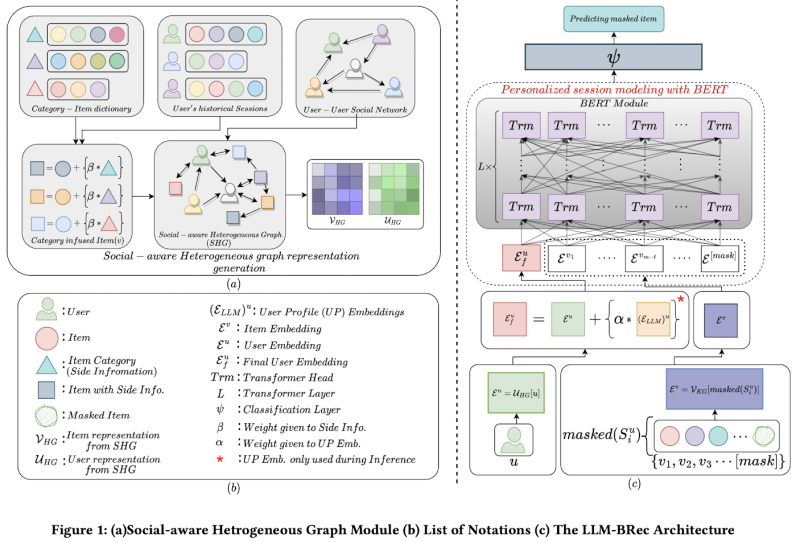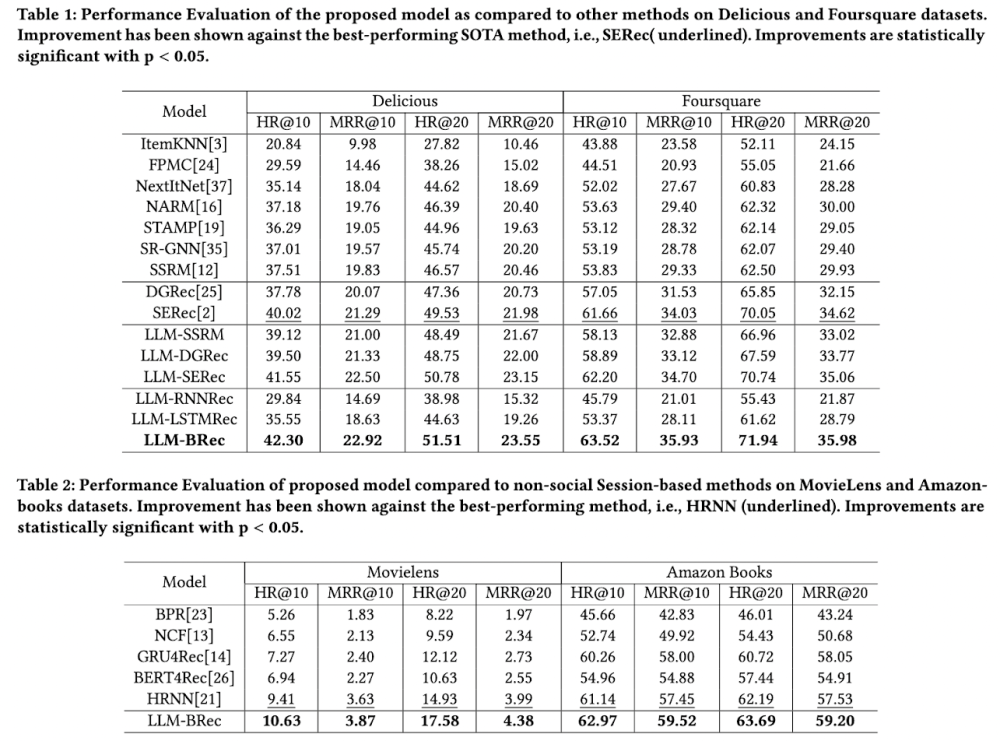
Overview of proposed framework
Tushar Prakash summarises paper titled “LLM-BRec: Personalizing Session-based Social Recommendation with LLM-BERT Fusion Framework” co-authored by Raksha Jalan and Niranjan Pedanekar. Accepted at 2nd Workshop on Gen-IR at 47th International ACM SIGIR Conference on Research and Development in Information Retrieval (SIGIR)
The rapid expansion of e-commerce and online entertainment has led to increased user expectations for personalized recommendations, driving the development of recommendation systems that effectively filter irrelevant information. Session-based Recommendation (SR) techniques focus on understanding user preferences within a temporal context to enhance prediction accuracy. Initial efforts in SR, such as Anonymous Session-based Recommendations (ASR), target scenarios where user IDs are not available, while Personalized Session-based Recommendations (PSR) utilize user IDs for improved cross-session information transfer. As social media gains traction, integrating social relationships into recommendation systems has become crucial, leading to the rise of Session-based Social Recommendations (SSR). Although SSR has shown promise through approaches like DGRec and SERec, they have limitations in fully leveraging personalized user information and tend to rely on computationally intensive algorithms.
To address these challenges, the proposed “LLM-BRec” framework introduces a Social-aware Heterogeneous Graph (SHG) for enhanced user and item representation and utilizes BERT for efficient session modelling. This framework builds a comprehensive knowledge graph from user interactions and social connections, allowing for better prediction of user interactions within sessions. By employing BERT’s self-attention mechanism, LLM-BRec significantly reduces training time by 50% and inference time by 80% compared to state-of-the-art methods. Furthermore, it emphasizes the importance of post-training user profiling with Language Models (LLMs) to enhance recommendation performance while maintaining computational efficiency. The effectiveness of LLM-BRec is validated through performance comparisons on both social and non-social recommendation datasets, consistently outperforming existing state-of-the-art models.
